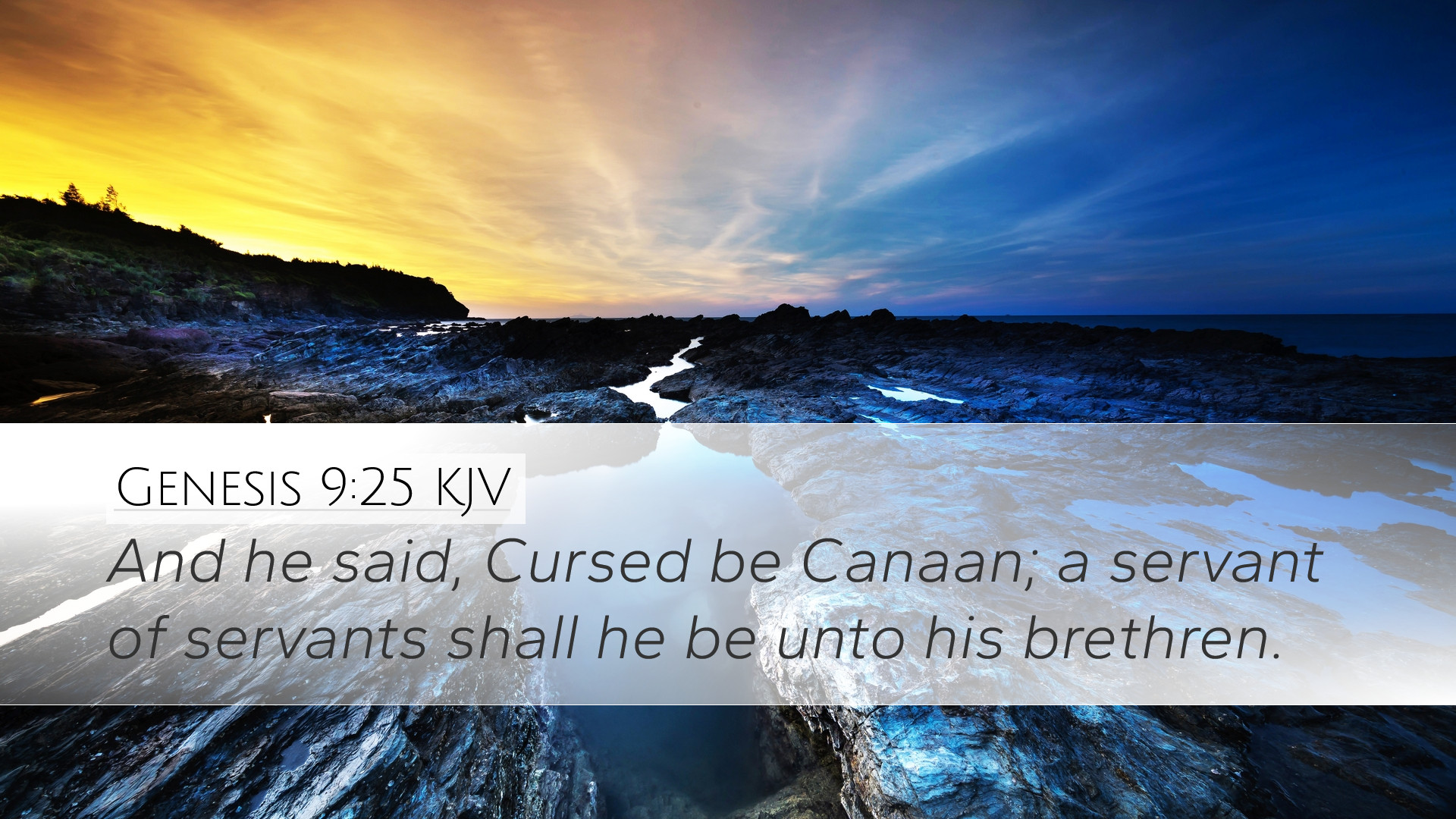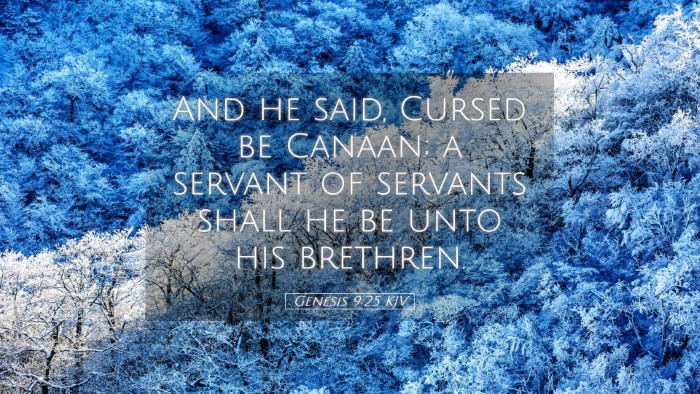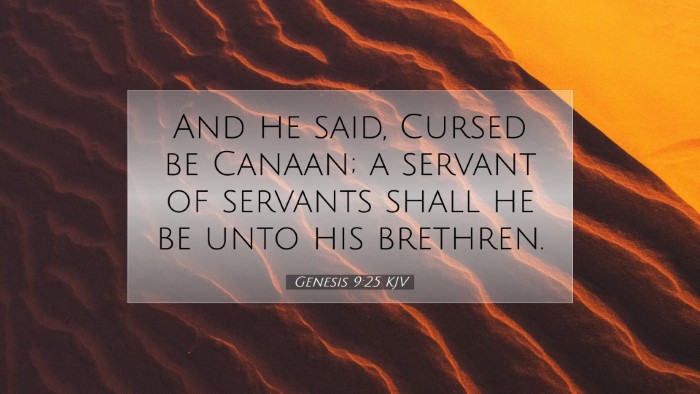Commentary on Genesis 9:25
Genesis 9:25 states, "Cursed be Canaan; a servant of servants shall he be unto his brethren." This verse is significant for understanding the implications of Noah's actions post-diluvian and the complexities of the relationships that followed within his family.
Contextual Background
To appreciate the weight of this curse, it is essential to examine the circumstances that led to Noah's pronouncement. Following the Flood, Noah plants a vineyard and becomes intoxicated, leading to a notorious incident involving his son Ham.
- Drunkenness and Exposure: Genesis 9:20-21 describes Noah's intoxication and subsequent exposure, suggesting a lapse in his moral vigilance.
- Ham's Reaction: Rather than covering his father’s nakedness, Ham sees his father and tells his brothers, which is interpreted as an act of disrespect that culminates in a grievous breach of familial honor.
- Shem and Japheth's Response: The contrasting actions of Shem and Japheth, who cover Noah without looking at him, highlight the respect due to a parent.
Examining the Curse
The curse pronounced by Noah upon Canaan raises critical discussions in the realm of biblical interpretation and theology:
- Nature of the Curse: Matthew Henry notes that Noah does not directly curse Ham, his son, but rather Canaan, Ham's son. This indicates a persistent consequence of Ham's sin that extends to future generations.
- Servitude of Canaan: The phrase "servant of servants" implies a future subservience that has been interpreted in various historical contexts, particularly concerning the descendants of Canaan and their relationships with the Israelites.
- Scope of Influence: Adam Clarke remarks that this curse has ramifications beyond the immediate context, particularly impacting the land of Canaan and the peoples that would inhabit it.
Theological Implications
This particular verse has often sparked theological debates regarding divine justice, human agency, and the nature of curses. Some significant reflections include:
- Divine Justice: The consequences of one’s actions, as seen in Ham's disrespect towards Noah, are a theme throughout Scripture. Clarke suggests that the repercussions of sin are not limited to the immediate actor.
- Generational Impact: The idea that children may bear the consequences of their parents' sins introduces discussions on the complexities of generational sin, as indicated by Henry.
Historical and Cultural Perspectives
The interpretation of this curse has been warped throughout history to justify various sociopolitical ideologies, particularly concerning race. Barnes warns against misusing Scripture to justify racialist views. Instead, it should be viewed through a lens of historical context:
- Ethnic Identities: The Canaanites, as the descendants of Canaan, played a significant role in the biblical narrative, often depicted in opposition to the Israelites.
- Fulfillment of the Curse: Over time, scholars like Henry have noted the downfall of the Canaanite cities and cultures as a fulfillment of Noah's words, demonstrating the weight of prophetic declarations.
Conclusion
Genesis 9:25 serves as a complex theological and moral commentary on familial relationships, sin, and the long-term implications of actions within a familial context. For pastors, theologians, and students of the Scripture, it underscores the principles of honor, respect, and the serious nature of sin. This passage invites further exploration of the themes of justice and the echoes of human actions in the unfolding narrative of God's relationship with humanity.
In summary, careful consideration of this verse allows for a deeper understanding of not just a single event, but a broader revelation about humanity and divine order.


